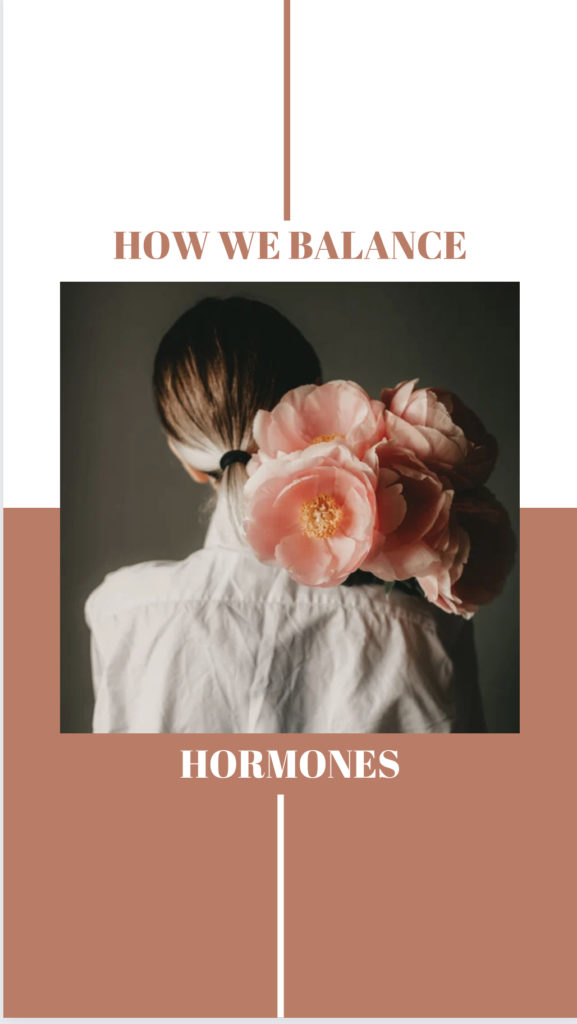Resources
Learn to balance your hormones with our unique approach

Hormone Imbalance
Feeling a little… or a lot off? Tired with brain fog, night sweats and lower energy? These all may be symptoms of a hormonal imbalance. This happens when you have too much or too little of one or more hormones, which are your body’s chemical messengers. Think of these chemicals as little coordinators that carry and send messages through your blood to your organs, skin, muscles and tissues. Hormones are an essential player to vitality, sleep, immune system functioning, fertility and health. Your endocrine system is what makes these messengers. While some hormonal imbalances are temporary due to stressors or illness, others types require treatment.
What hormones precisely?
Here we are talking about estrogens, progesterone and testosterone. Read on to find out more:
Estrogens are a group of hormones that play an important role in growth and reproductive development in a woman-estradiol,estriol and estrone.
Progesterone is a steroid hormone that is secreted by the corpus luteum, a gland that the female body produces after ovulation during the second half of the menstrual cycle.
Testosterone. Although testosterone is considered a male hormone, women produce small amounts of testosterone in their ovaries and adrenal glands. When combined with the right amount of estrogen, testosterone helps with growth and repair of a woman’s reproductive tissues, bone mass and libido.
Imbalances in these hormones can cause uncomfortable symptoms like:
Signs that a woman has high estrogen levels
Increased pms bloating
Mood swings
Dry skin
Weight gain
Insulin resistance
Signs that estrogen is low
Missed menses
Brain fog
Hot flashes & difficulty sleeping
Fatigue night sweats
Signs that progesterone levels are high
Cramping, changes in appetite, weight gain breast tenderness
Frequent vaginal infections
High body temperature
Signs that progesterone is low
depression/anxiety
Fluid retention
Low libido
Short cycles
Signs that testosterone is low
Lowered libido
Signs testosterone is high
Frontal balding
Acne
High levels of testosterone can also lead to infertility and is commonly seen in PCOS, polycystic ovarian syndrome. Including increased facial hair and obesity.
How we treat hormone imbalance
Here at WellBalanced we are an integrated care center that treats hormone imbalance in a variety of different ways. Upon booking an appointment with one of our providers you can also be expected to be seen by an:
Acupuncturist: Through taking the pulse, observing the tongue and general questions your acupuncturist will select a specific set of meridian points to help bring the body back into homeostasis, reduce stress and over time, balance the hormones that have been dysregulated.
Recommendations for Herbal Medicine and supplements: Through careful consideration of your symptoms your practitioner can recommend a variety of herbs and supplements that will aid in healing and balancing a dysregulated endocrine system.
Physical Therapist: One of our physical therapists can meet you where you’re at and get you started on an exercise routine that’s right for you, working with your current energy levels as your endocrine system heals. “Exercise has been shown to reduce stress levels and also help regulate your hormones, such as insulin,” says Dr. Yasmin Akhunji, an endocrinologist with Paloma Health
Chiropracter: When Our nervous system becomes dysregulated from stress, this can ultimately cause an imbalance in hormone levels. Especially if we have stressful lives and are running high on cortisol. Research has shown that chiropractic spinal adjustments stimulate changes in the CNS function thus not only help functional performance but helps to downregulate stress in the body. A chiropractic adjustment can help to regulate the nervous system.
Ready to get started on a better path to health? Book an initial appointment here. Using an integrative approach our practitioners will work together to get you the help you need and deserve!